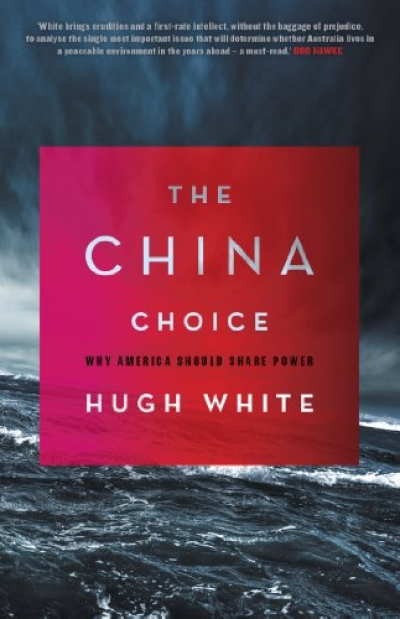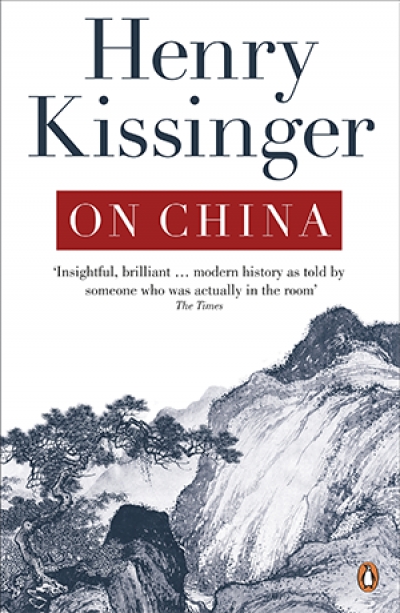Asian Studies
White Papers are falling on Australia like confetti. We had two on foreign affairs and one on terrorism in the seven years to 2004; the third one on defence in four years will appear this year, and in October 2012 Ken Henry delivered Australia in the Asian Century. Defence White Papers are perennially concerned with Australia’s need for the material and money to protect us against certain countries, which are rarely named. The Asian Century paper, on the other hand, explicitly names China among the five ‘key regional nations’ to be given priority in order to bring ‘a stronger national purpose and cohesion’ to the relationship with Australia. The Defence White Paper will be sober in tone, as Menzies was when announcing his ‘melancholy duty’ in 1939, or resolute, as was Curtin in declaring Australia’s shift of dependence to the United States in 1941. In contrast, The Asian Century adopts cheerful, forward-looking slogans. Australia’s success ‘will be based on choice, not chance’, it says; ‘the tyranny of distance is being replaced by the prospects of proximity’; and Australia is ‘located in the right place at the right time’. Asia is so important, says Dr Henry, that it is going to be ‘the main game not only economically but in almost any sense of national significance’.
... (read more)The China Choice: Why America Should Share Power by Hugh White
Figures released by the International Monetary Fund on 16 August 2010 revealed that China had overtaken Japan to become the world’s second-largest economy. Within a generation it had gone from being an isolated society that could barely feed its own people to the largest producer of steel and concrete on the planet, a vital link in global production chains and, since 2008, the most important engine for global economic growth.
... (read more)Too often foreign affairs seem the realm of tedious diplomacy, impenetrable acronyms, and cynical realpolitik. So it comes as a relief to Western governments and voters if they can from time to time adopt a stance that places them on the side of the angels. Helping transform bad régimes into good, as in Burma, offers such an opportunity, and activist and author Benedict Rogers’ book is very much a tract for these times – explicitly informed, he tells us, by a moral framework.
... (read more)The Battle for the Arab Spring: Revolution, Counter-Revolution and the Making of a New Era by Lin Noueihed and Alex Warren & Libya: The Rise and Fall of Qaddafi by Alison Pargeter
The danger in writing about unfolding dramas is that they keep unfolding, potentially stranding both writer and reader. Not so with these two fine books, whose authors have long experience of the Middle East. Quite different in scope – a sweep of the Arab world contrasting with the ascent and decay of Muammar Gaddafi’s brutal régime – they deal with past, present, and possible future events in a lucid, compelling way. Anyone with an interest in what is at stake in the Middle East would be well advised to read them.
... (read more)Making Them Indonesians: Child transfers out of East Timor by Helene van Klinken
Think of Syria today and you have East Timor in 1975–78, the main difference being that the story of Indonesia’s brutal invasion was totally hidden from the world. It was in this framework of pain, trauma, and confusion that an estimated three to four thousand Timorese children were carried off to Indonesia without informed parental consent.
... (read more)'Letter from Jaipur: Free speech and sectarian tensions at the Jaipur Festival' by Claudia Hyles
This year’s Jaipur Literature Festival (20–24 January) more than lived up to the Indian Ministry of Tourism’s slogan – ‘Incredible India’.
... (read more)Riding the Trains in Japan: Travels in the sacred and supermodern East by Patrick Holland
Patrick Holland makes his plans clear in the first sentence of Riding the Trains in Japan (his fourth book and first work of non-fiction): ‘I arrived in Kyoto in the middle of the national holiday called O-Bon, the Japanese All Souls, when Buddhists believe departed spirits may return to earth and when ancestors and the elderly are honoured.’ His subjects and themes have been identified: himself, the people and places of Asia, Eastern spirituality and tradition, and the transient nature of life and all of its cultural accessories. The opening also reveals Holland’s technical approach: a willingness to conflate personal anecdote with documentary observation, the minutiae of daily life with the grandness of tradition, and the material world with a spiritual one. Clearly, he wants to test the conventional form of travel writing.
... (read more)Henry Kissinger has never seemed at home in the United States, although he has served in its highest councils and received its richest rewards. When I was one of his students at Harvard, we called him Henry, to distinguish him from professorial luminaries such as Galbraith, Riesman, and Schlesinger. He did not fit the insistent reasonableness of the Harvard faculty. His guttural voice, anxiety to please, mischievous, self-deprecating humour, and fearsome views on nuclear warfare made him an almost unbelievable figure of playful profundity.
... (read more)
Paradoxical neglect
Dear Editor,
Patrick McCaughey’s article ‘NativeGrounds and Foreign Fields: The Paradoxical Neglect of Australian Art Abroad’ (June 2011) caught my attention because of its title, then its content. The ...
There Goes the Neighbourhood: Australia and the Rise of Asia by Michael Wesley
Sometime around 1820, forty years after its Industrial Revolution began, Britain overtook China to become the world’s richest country. Sometime between now and 2020, forty years after China’s own Industrial Revolution was launched by Deng Xiaoping’s economic reforms, China is set to overtake the United States and regain its place at the top of the world’s economy.
... (read more)






